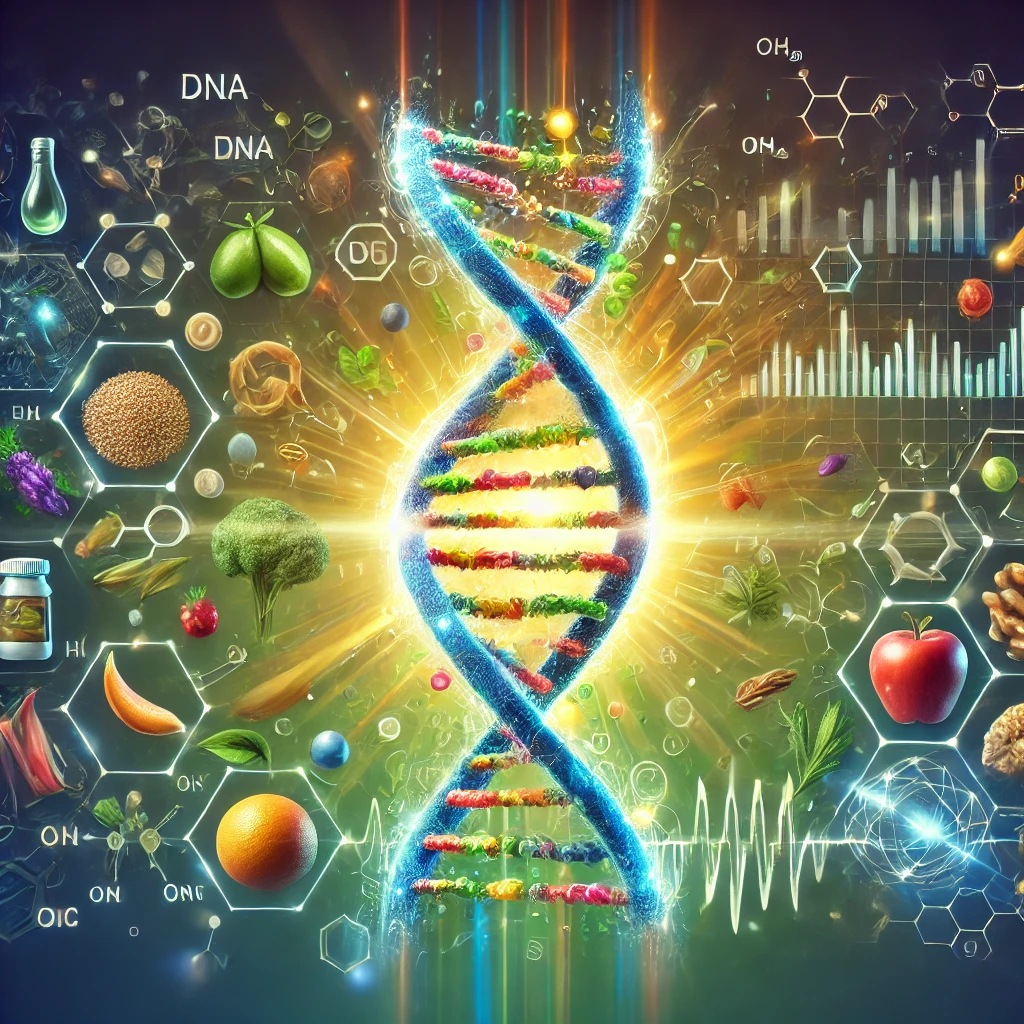The Role of Nutrigenomics in Mental Health
Understanding Nutrigenomics
Nutrigenomics is an emerging field that bridges the gap between nutrition and genetics, focusing on how individual genetic profiles interact with dietary choices to influence health outcomes. This discipline examines how various nutrients affect gene expression and how genes impact an individual’s response to the nutrients consumed. Through the lens of nutrigenomics, it becomes evident that diet is not a one-size-fits-all approach; rather, individualized dietary interventions based on genetic makeup can significantly enhance health and well-being.
The concept of nutrigenomics underscores the significance of understanding genetic variations, known as polymorphisms, which can alter metabolism and nutrient absorption. For example, certain genetic variants may influence the effectiveness of vitamins or certain dietary compounds, highlighting the need for personalized nutrition plans that consider these genetic differences. As research in this area continues to evolve, it offers promising insights into tailoring dietary choices that can optimize health at both the physical and mental levels.
In the realm of mental health, nutrigenomics holds particular relevance, offering the potential to identify how specific dietary patterns may affect mood, cognition, and overall psychological well-being. Understanding the interplay between nutrition and genetics can aid in developing targeted dietary strategies to support mental health, which is especially critical in preventing and managing mental health disorders. By recognizing that each individual may respond differently to dietary interventions based on their genetic makeup, nutrigenomics encourages a shift from traditional approaches to a more personalized model of nutritional care.
This innovative field emphasizes the importance of nutrients not only in physical health but also in mental health, making it a vital area of study for healthcare professionals seeking to improve patient outcomes through diet and lifestyle modifications.
The Connection Between Genes and Mental Health
The intricate relationship between genetics and mental health has gained increasing attention within scientific circles. Numerous studies have suggested that genetic predisposition plays a significant role in determining one’s susceptibility to various mental health disorders, including anxiety and depression. For instance, individuals with a family history of these conditions are often more likely to experience similar challenges, suggesting a hereditary influence on their mental well-being.
Research indicates that specific genetic markers may be associated with the likelihood of developing mood disorders. For example, variations in the serotonin transporter gene (5-HTTLPR) have been linked to depression, particularly in conjunction with stressful life events. This indicates that genetic factors can interact with environmental triggers, leading to a more complex understanding of mental health. Furthermore, studies involving twin populations have contributed valuable insights into the heritability of mental disorders, establishing that genetic factors account for 30-50% of the risk for anxiety and depressive disorders.
The role of other genetic components cannot be overlooked. Certain polymorphisms, such as those found in the COMT gene, have shown associations with cognitive function and emotional regulation. This suggests that the interconnection between genes and mental health extends beyond mere susceptibility to disorders. Instead, it encompasses variations in how individuals process emotions, cope with stress, and respond to treatment.
Moreover, recent advancements in genomics and bioinformatics have enabled researchers to explore the complexities of this relationship further. Genetic testing and personalized medicine are now emerging fields that offer the potential for more tailored approaches to mental health treatment. As our understanding of genomics and its implications for mental health deepens, the opportunities for early intervention and prevention strategies become increasingly evident.
Personalized Nutrition Plans for Mental Wellness
Nutrigenomics, the study of how genes interact with nutrients, provides a significant opportunity for developing personalized nutrition plans aimed at enhancing mental wellness. By understanding an individual’s genetic profile, tailored dietary approaches can be crafted to improve mental health outcomes. Research indicates that specific nutrients can play a pivotal role in mental well-being, particularly when aligned with one’s unique genetic predispositions.
One crucial element is omega-3 fatty acids, known for their anti-inflammatory properties and impact on neurotransmitter function. Genetic variations can affect the metabolism of these fatty acids, influencing how effectively they contribute to mood regulation and cognitive function. Individuals with certain genetic markers may benefit from increased omega-3 intake through sources such as fatty fish, flaxseeds, or supplements. This personalized approach acknowledges that not everyone’s body processes nutrients in the same way.
In addition to omega-3s, B-vitamins, including B6, B12, and folate, are essential for mental health, influencing neurotransmitter synthesis and supporting the nervous system. Genetic factors can impact the body’s ability to utilize these vitamins effectively. For instance, individuals with specific polymorphisms may require higher amounts of B-vitamins for optimal mental processing and emotional regulation. A personalized nutrition plan could emphasize foods rich in these vitamins or suggest supplementation based on genetic needs.
To practically apply nutrigenomics insights, individuals can undergo genetic testing to identify their specific nutritional requirements. By integrating their genetic information with dietary choices, they can strategically alter their diets to enhance mental wellness. This tailored approach not only maximizes the health benefits but also empowers individuals to take control of their mental health through informed dietary decisions.
The Future of Nutrigenomics in Mental Health Treatment
The field of nutrigenomics is rapidly evolving, offering promising insights into the intersection of genetics, nutrition, and mental health. As researchers continue to uncover the intricate relationships between genetic markers and individual responses to dietary components, the potential for personalized medicine in treating mental health disorders becomes increasingly viable. Future advancements in genetic testing are expected to play a pivotal role in this transformation, enabling practitioners to design tailored nutritional interventions based on a patient’s unique genetic profile.
Personalized medicine, achieving a more individualized approach to mental health treatment, is becoming feasible through the integration of nutrigenomics. By analyzing specific genetic predispositions, healthcare providers can recommend dietary strategies and supplements that enhance mental well-being. For example, variations in genes related to neurotransmitter function and metabolism may dictate how individuals respond to particular nutrients. Personalized dietary recommendations could, therefore, mitigate symptoms of conditions such as depression or anxiety more effectively than traditional, one-size-fits-all approaches.
The incorporation of nutrigenomic insights into mainstream mental health treatments also serves to amplify the potential benefits of existing therapies. As mental health professionals become increasingly aware of the biochemical underpinnings linked to the foods we consume, they can develop comprehensive treatment plans that encompass both nutritional support and conventional therapeutic methods. Ongoing research in this area is essential, as it not only broadens our understanding of how nutrition influences mental health but also enhances the prospects for new targeted interventions.
In conclusion, the future of nutrigenomics in mental health treatment holds great promise. As science progresses in understanding the intricate relationship between genetics, nutrition, and mental illness, there lies a unique opportunity to develop innovative and personalized strategies that effectively address mental health disorders, ultimately improving patient outcomes and quality of life.







